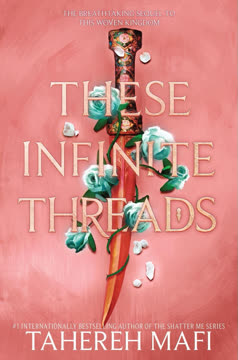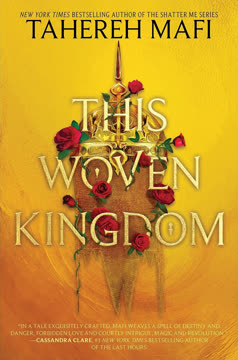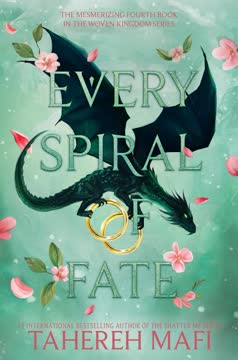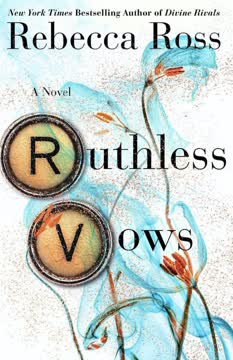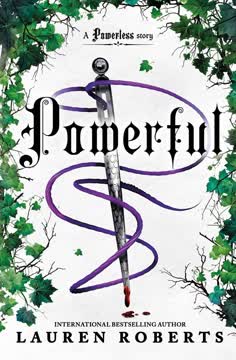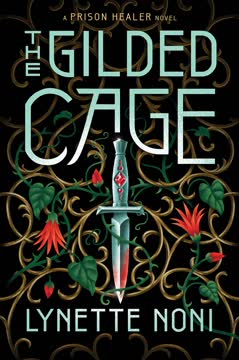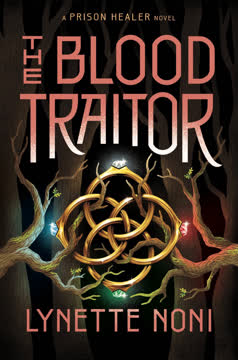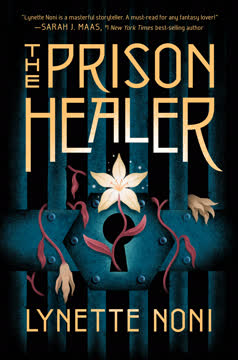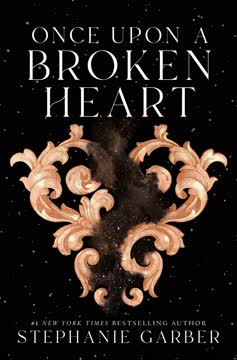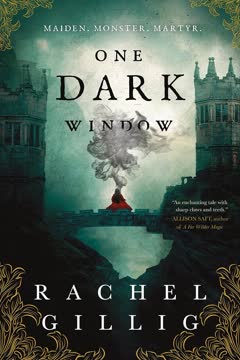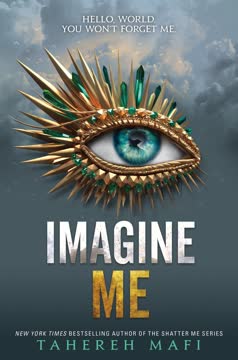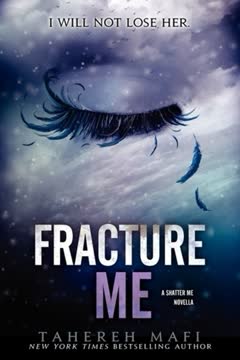Plot Summary
Fire, Betrayal, and Prophecy
The story opens in the aftermath of a royal ball turned massacre. Kamran, heir to the Ardunian throne, witnesses the murder of his grandfather, King Zaal, at the hands of Cyrus, the young king of Tulan. Alizeh, a servant girl with mysterious powers, survives a magical fire and reveals herself as a Jinn. Betrayals are exposed: Hazan, Kamran's trusted minister, is implicated, and Kamran's faith in Alizeh is shattered. The prophecy that a Jinn queen will rise and topple empires looms over all, as Kamran's world unravels in blood and confusion.
Flight on Dragon Wings
Alizeh is swept away from the chaos by a dragon, only to find herself accompanied by Cyrus. Their banter is sharp, but the stakes are deadly: Cyrus reveals that Alizeh is to marry him, a union orchestrated by the devil Iblees. Alizeh's powers and heritage as the lost queen of the Jinn are hinted at, and her reluctance to accept her fate is palpable. The journey to Tulan is both a literal and metaphorical crossing into a new, dangerous world.
Thrones in Turmoil
Back in Ardunia, Kamran reels from the loss of his grandfather and the betrayal of those closest to him. The palace is in disarray, nobles are scheming, and Kamran's own legitimacy is questioned as his magical birthmark mutates. The defense minister Zahhak moves to seize power, and Kamran is paralyzed by both magic and grief. The empire teeters on the brink of war, with Kamran's enemies circling.
The Queen's Unwanted Destiny
In Tulan, Alizeh is introduced to Cyrus's mother, Sarra, who is both welcoming and manipulative. Sarra reveals her own hatred for her son and enlists Alizeh in a plot to kill him. Alizeh is torn between her compassion, her destiny as a Jinn queen, and the machinations of those around her. The weight of her people's hopes and the devil's schemes press upon her, as she is forced to consider marriage and murder as tools of survival.
Grief and the Golden Mark
Kamran, now marked by a mutated golden stripe, is physically and emotionally changed. He is haunted by his failures, the loss of his grandfather, and his inability to trust. The magical mark on his body becomes a symbol of his uncertain claim to the throne and his internal struggle. As he prepares for war and vengeance, Kamran is increasingly isolated, with only the memory of Alizeh and the betrayal of Hazan to keep him company.
Tulan's Unlikely Welcome
Alizeh is paraded through Tulan, where the Jinn recognize her as their long-lost queen. The city is alive with enchantment, but also with tension, as the Jinn's hopes and the Clay's suspicions collide. Alizeh's presence ignites a fervor among the oppressed, and she is thrust into the center of a political and spiritual awakening. Cyrus's role as both captor and potential ally becomes more complicated as their fates intertwine.
The Mother's Deadly Request
Sarra, Cyrus's mother, reveals her true motives: she wants Alizeh to kill Cyrus, her own son, as revenge for the murder of her husband. The complexity of Sarra's emotions—her hatred, her pain, her complicity—adds layers to the web of intrigue. Alizeh is forced to confront the moral cost of power and the dangers of being a pawn in others' schemes.
Kamran's Rage and Doubt
Kamran, driven by rage and heartbreak, interrogates Hazan and grapples with the possibility that Alizeh is not the villain he believed. The evidence of her innocence mounts, but Kamran's pride and pain keep him from accepting it. The political situation worsens, and Kamran's enemies move to strip him of his birthright. The lines between friend and foe blur, and Kamran's sense of self is tested.
The Carpet Bag's Secrets
Kamran and Hazan discover Alizeh's lost carpet bag, which contains clues to her identity and destiny. Among the items is the Book of Arya, a magical artifact tied to the prophecy of the Jinn queen. The book's cryptic message—about braiding thrones and uniting clay and fire—suggests that Alizeh's fate is to unite the warring peoples. The discovery deepens the mystery and sets Kamran and Hazan on a path to Tulan.
Kindness in the Enemy's Bed
After a brutal magical attack by Iblees, Cyrus is left broken and vulnerable. Alizeh, despite her anger and mistrust, tends to him with compassion, blurring the lines between enemy and ally. Their shared pain and longing create a fragile bond, even as secrets and betrayals threaten to destroy it. The emotional stakes are heightened as love, duty, and survival collide.
Hazan's True Allegiance
Hazan, once thought a traitor, reveals his true loyalty to Alizeh and the Jinn cause. He and Kamran form an uneasy alliance, agreeing to seek the truth in Tulan and to protect Alizeh—if she is indeed innocent. Hazan's knowledge of Jinn history and magic becomes crucial, and the trio's destinies become inextricably linked. The stage is set for a confrontation that will determine the fate of empires.
The Jinn's Awakening
Alizeh's presence in Tulan awakens the hopes of the Jinn, who see her as their prophesied savior. The city erupts in fervor, and Alizeh is forced to confront the reality of her destiny. The burden of leadership, the expectations of her people, and the manipulations of Iblees threaten to overwhelm her. Alizeh must decide whether to embrace her role or flee from it.
The Book of Arya
The Book of Arya, recovered from Cyrus's secret cabinet, reveals its secrets only to Alizeh. The book's message is clear: the future depends on the unification of Jinn and Clay, and on the braiding of thrones. The magical artifact becomes a symbol of hope and a guide for the coming struggle. Alizeh's claim to power is legitimized, and the stakes of her choices are raised.
The Devil's Bargain
The devil's presence looms over all, orchestrating events from the shadows. Both Cyrus and Alizeh are ensnared by Iblees's bargains—Cyrus through a deadly oath, Alizeh through the threat to her people. Iblees's power is shown to be both psychological and magical, capable of breaking even the strongest wills. The characters must navigate his traps or be destroyed by them.
War on the Horizon
The political situation in both Ardunia and Tulan deteriorates. Zahhak moves to seize the Ardunian throne, the Diviners question Kamran's legitimacy, and the threat of war becomes imminent. In Tulan, the Jinn demand Alizeh's ascension, and the Clay fear rebellion. The personal and political are inseparable, and the choices of a few will determine the fate of thousands.
The Marriage Ultimatum
Cyrus offers Alizeh a marriage of convenience: she will become queen, he will be freed from Iblees, and she will have the power to save her people. The offer is both a lifeline and a trap, complicated by genuine feelings and mutual distrust. Alizeh must weigh her heart against her duty, knowing that any choice will have devastating consequences.
The Mob at the Gates
The Jinn masses gather at the gates of Tulan, demanding to see their queen. The city is on the verge of uprising, and Alizeh is forced to step into the light and claim her destiny. The moment is both triumphant and terrifying, as the hopes of a people and the machinations of the devil converge.
Simorgh's Feather
In Ardunia, Kamran discovers a magical feather left by his grandfather, a token that summons Simorgh, the mythical bird. With the help of Hazan, Omid, and others, Kamran escapes imprisonment and sets out for Tulan. The journey is both literal and symbolic—a flight toward destiny, redemption, and the possibility of unity.
The Locked Cabinet
Alizeh discovers that Cyrus has stolen her most precious possession, the Book of Arya. Their confrontation is charged with anger, betrayal, and longing. The book's magic responds only to Alizeh, confirming her unique role. The breach of trust threatens to undo their fragile alliance, even as greater dangers loom.
The Lovers' Dilemma
Alizeh and Cyrus, drawn together by fate and feeling, are torn apart by secrets and the demands of destiny. Their intimacy is both a comfort and a curse, as the specter of Iblees and the needs of their people stand between them. The possibility of love is real, but so is the threat of destruction.
The Tower Prison
Kamran is imprisoned in the tower, stripped of power and hope. Yet, through the intervention of friends and the magic of Simorgh, he finds a way out. The experience transforms him, forging a new resolve and a new sense of purpose. The journey to Tulan begins in earnest.
The Birds Take Flight
Kamran, Hazan, Omid, Miss Huda, and Deen escape Ardunia on the backs of Simorgh and her kin, heading for Tulan. The group is an unlikely fellowship, united by loyalty, love, and the hope of a better future. As they soar into the night, the threads of fate draw tighter, and the final confrontation approaches.
Characters
Alizeh
Alizeh is the lost queen of the Jinn, raised in obscurity as a servant after her family's murder. Marked by ice in her veins and a destiny she never wanted, she is both powerful and vulnerable. Her compassion is her greatest strength and weakness, making her a beacon for the oppressed and a target for manipulators. Alizeh's journey is one of self-discovery, as she learns to balance duty, love, and survival. Her relationships with Kamran and Cyrus are fraught with longing, betrayal, and the hope of unity.
Kamran
Kamran is the heir to Ardunia, a prince forged in privilege and expectation. The murder of his grandfather and the betrayal of those closest to him shatter his world, leaving him marked—literally and figuratively—by doubt and pain. Kamran's struggle is internal as much as external: he must learn to trust, to forgive, and to lead without certainty. His love for Alizeh is both his salvation and his undoing, driving him to acts of both vengeance and mercy.
Cyrus
Cyrus is the young king of Tulan, infamous for murdering his own father and making a deadly bargain with Iblees. Outwardly ruthless, he is inwardly broken, caught between the demands of power, the manipulations of the devil, and his own longing for love and redemption. His relationship with Alizeh is complex—part alliance, part rivalry, part doomed romance. Cyrus's journey is one of atonement, as he seeks freedom from his curse and meaning in his suffering.
Hazan
Hazan is Kamran's former minister, revealed to be a Jinn and a secret ally of Alizeh. His apparent betrayal masks a deeper loyalty to the Jinn cause and to Alizeh's safety. Hazan is pragmatic, resourceful, and willing to risk everything for those he loves. His friendship with Kamran is tested but ultimately endures, and his knowledge of magic and history is crucial to the unfolding events.
Sarra
Sarra is Cyrus's mother, a woman broken by the murder of her husband and her son's descent into darkness. Her love curdles into hatred, and she enlists Alizeh in a plot to kill Cyrus. Sarra is both victim and villain, her actions driven by pain, pride, and a desperate need for justice. Her relationship with Alizeh is fraught with duplicity and unexpected tenderness.
Zahhak
Zahhak is the defense minister of Ardunia, eager to seize power in the chaos following Zaal's death. He is cunning, ruthless, and unafraid to use magic or manipulation to achieve his ends. Zahhak's machinations drive much of the political intrigue, and his rivalry with Kamran is a central conflict.
Omid
Omid is a former street urchin whose chance encounter with Kamran sets the plot in motion. Resourceful and brave, he becomes Kamran's unlikely home minister and a symbol of hope for the future. Omid's loyalty and innocence provide a counterpoint to the cynicism of the adults around him.
Miss Huda
Miss Huda is a young woman marginalized by her birth and appearance, but she proves herself loyal and courageous. Her friendship with Alizeh and her role in uncovering key secrets make her an important, if underestimated, player in the unfolding drama.
Deen
Deen is the apothecarist who treats Alizeh's wounds and becomes entangled in the larger conflict. Practical and skeptical, he is drawn into the quest for justice and unity, providing both comic relief and grounded perspective.
Iblees
Iblees is the unseen hand behind much of the chaos, orchestrating events through bargains, curses, and psychological torment. His power is both magical and existential, representing the darkness within and without. Iblees's influence is felt in every major decision, and escaping his grasp is the ultimate challenge for all.
Plot Devices
Prophecy and Destiny
The belief that a Jinn queen will rise to unite or destroy empires shapes the actions of every major character. This prophecy is both a source of hope and a tool of manipulation, used by Iblees and others to justify violence, betrayal, and sacrifice. The tension between fate and free will is a central theme, as characters struggle to define their own paths.
Magical Artifacts and Marks
The Book of Arya, the nosta (truth-detecting marble), Simorgh's feather, and Kamran's golden mark are all plot devices that confer or question legitimacy, reveal secrets, and drive the action. These artifacts are both literal tools and metaphors for the burdens of heritage and destiny.
Dual Narrative Structure
The novel alternates between Alizeh's and Kamran's points of view, with interludes from Cyrus and others. This structure allows for dramatic irony, as the reader knows more than any one character, and for the exploration of parallel journeys—each protagonist facing betrayal, loss, and the challenge of leadership.
Foreshadowing and Repetition
The repeated falls (literal and figurative), the motif of fire and ice, and the recurring references to prophecy and fate create a sense of inevitability and interconnectedness. The use of dreams, visions, and magical communication foreshadows key revelations and unites the characters across distance and difference.
Political Intrigue and Betrayal
The struggle for power in both Ardunia and Tulan is marked by betrayals, secret deals, and shifting loyalties. The personal is always political, and the fate of empires hinges on the choices of individuals. The constant threat of war, coup, and assassination keeps the stakes high.
Analysis
These Infinite Threads is a lush, emotionally charged fantasy that explores the intersection of personal longing and political destiny. At its heart are characters who are both victims and agents of fate, struggling to define themselves in a world shaped by prophecy, prejudice, and manipulation. The novel interrogates the nature of leadership—what it means to be chosen, to be worthy, to bear the hopes of a people. It is also a meditation on compassion as both a strength and a vulnerability, showing how love and kindness can be exploited but also how they can heal and unite. The story's modern resonance lies in its depiction of marginalized identities, the dangers of unchecked power, and the possibility of forging unity from division. Ultimately, the book suggests that true leadership requires not just strength, but empathy, and that the threads of fate are woven by the choices we make in the face of darkness.
Last updated:
FAQ
Synopsis & Basic Details
What is These Infinite Threads about?
- A Prophecy Unfolds: These Infinite Threads continues the story of Alizeh, a Jinn queen in hiding, and Kamran, the Ardunian prince, whose lives are irrevocably intertwined by an ancient prophecy foretelling the rise of a Jinn queen and the fall of empires. The narrative plunges into chaos after King Zaal's murder, forcing Alizeh and Kamran onto separate, perilous paths.
- Forced Alliances & Betrayals: Alizeh is whisked away to Tulan by its enigmatic king, Cyrus, who reveals she is destined to marry him as part of a devil's bargain, while Kamran grapples with the sudden loss of his grandfather, the mutation of his magical birthmark, and the betrayal of trusted allies. Both protagonists must navigate a world rife with political intrigue, shifting loyalties, and the looming threat of war.
- Quest for Truth & Destiny: As Alizeh uncovers more about her heritage and the true nature of Iblees's manipulations, she grapples with her destiny to unite her people. Meanwhile, Kamran, stripped of his certainties, embarks on a desperate journey to Tulan, seeking answers about Alizeh and his own fractured identity, setting the stage for a climactic confrontation between love, duty, and fate.
Why should I read These Infinite Threads?
- Deep Character Psychology: Readers will be captivated by the intricate psychological complexities of Alizeh, Kamran, and Cyrus, exploring their unspoken motivations, internal conflicts, and profound emotional journeys as they grapple with destiny and personal desires. The novel delves into how trauma and power shape identity, offering a rich character analysis.
- Lush World-Building & Magic: Tahereh Mafi expands on the vibrant, magic-infused world, contrasting Ardunia's rigid traditions with Tulan's fluid enchantments and hidden Jinn communities. The detailed descriptions of magical artifacts, unique abilities, and the interplay of elemental forces (fire, ice, water) create an immersive and enchanting reading experience.
- Intense Emotional Stakes: The narrative is a masterclass in emotional tension, weaving together themes of love, betrayal, sacrifice, and the burden of leadership. Readers will find themselves deeply invested in the characters' struggles, as they face impossible choices and navigate a treacherous landscape where personal feelings often clash with the fate of empires.
What is the background of These Infinite Threads?
- A World Divided by Prejudice: The story is set in a world where Jinn, beings of fire, have been oppressed and marginalized for centuries, forced into hiding or servitude by the dominant Clay (human) empires like Ardunia. This historical context of persecution deeply impacts Alizeh's identity and the Jinn's yearning for a true queen.
- Contrasting Empires: Ardunia, Kamran's empire, is depicted as a vast, traditional, and somewhat stagnant power, where magic is strictly controlled by Diviners and the ruling class. In contrast, Tulan, Cyrus's kingdom, is smaller but more magically vibrant, with Jinn living more openly, though still under the shadow of Iblees's influence. This contrast highlights different approaches to power and freedom.
- Ancient Prophecy & Devil's Bargains: The core conflict is driven by an ancient prophecy foretelling a Jinn queen who will "braid the thrones" and unite "clay and fire." This prophecy is manipulated by Iblees, the devil, who makes insidious bargains with powerful figures like Cyrus, leveraging their desperation to orchestrate events for his own mysterious ends, adding layers of supernatural intrigue and moral ambiguity.
What are the most memorable quotes in These Infinite Threads?
- "Tell me about my end. When is it written for me to leave this world? Who will inherit my throne?": This epigraph from Abolghasem Ferdowsi's Shahnameh sets a somber, fated tone for the entire novel, immediately establishing themes of destiny, mortality, and the struggle for power that define the characters' journeys.
- "I will not be moved by you—and you have underestimated me if you think I will succumb to your charms.": Cyrus's declaration to Alizeh in Chapter 2, delivered with a mix of anger and self-preservation, encapsulates his internal battle against both his forced attraction to her and Iblees's manipulations, highlighting his deep-seated fear of vulnerability.
- "My kingdom. For your hand.": Cyrus's shocking offer to Alizeh in Chapter 14, a desperate plea for freedom from Iblees, is a pivotal moment that redefines their relationship and raises the stakes of the entire narrative, forcing Alizeh to confront an impossible choice between personal desire and the fate of her people.
What writing style, narrative choices, and literary techniques does Tahereh Mafi use?
- Lyrical and Sensory Prose: Mafi employs a distinctive, poetic writing style rich in sensory details and evocative metaphors, immersing readers in the characters' internal states and the magical world. Her descriptions often blend the beautiful with the brutal, creating a unique atmosphere, as seen in Alizeh's perception of Tulan's "celestial bodies" (Chapter 4) or Kamran's "hollowed out" feeling (Chapter 1).
- Dual Narrative Structure: The novel primarily alternates between Alizeh's and Kamran's first-person perspectives, offering intimate access to their thoughts, fears, and evolving emotions. This dual narrative allows for dramatic irony and a deeper understanding of their parallel struggles, often revealing their unspoken motivations and psychological complexities.
- Symbolism and Foreshadowing: Mafi masterfully uses recurring symbols (fire, ice, water, specific colors like gold and copper) and subtle foreshadowing to deepen thematic resonance and hint at future plot developments. For instance, Kamran's mutating golden mark physically manifests his internal turmoil and connection to Jinn magic, while Cyrus's dreams of Alizeh subtly reveal Iblees's long-game manipulation.
Hidden Details & Subtle Connections
What are some minor details that add significant meaning?
- Cyrus's Hat as a Magical Veil: The recurring mention of Cyrus's black hat, particularly its absence when he's more vulnerable or revealing his true self (e.g., in Chapter 12 when he's "without a weapon, entirely unafraid"), subtly hints that it's not just an accessory but a magical artifact that conceals his true appearance or power, allowing him to move unnoticed among his people. This detail underscores his hidden nature and the constant need for magical concealment in his life.
- Alizeh's Sewing Supplies as Weapons: The revelation that Alizeh "murdered those men with little more than her own sewing supplies" (Chapter 13) is a subtle but powerful detail. It subverts expectations of a queen's arsenal, highlighting her resourcefulness, practicality, and the unexpected strength found in seemingly mundane objects, connecting her past as a servant to her future as a formidable leader.
- The Firefly as a Jinn Communication Network: Hazan's firefly, initially appearing as a simple pet, is revealed to be a sophisticated communication device for the Jinn network (Chapter 31). This detail not only explains how Hazan was alerted to Kamran's danger but also symbolizes the hidden, interconnected nature of the Jinn community and their quiet resistance, operating beneath the surface of the dominant Clay world.
What are some subtle foreshadowing and callbacks?
- Kamran's "Weakness of Heart" Prophecy: King Zaal's accusation that Kamran is "weak of heart" (Chapter 17) subtly foreshadows Kamran's later internal struggle with his compassion for Alizeh, which he initially perceives as a flaw. This callback reinforces the theme of self-discovery and the redefinition of strength, as Kamran learns that empathy can be a powerful asset, not a weakness.
- Cyrus's Dreams of Alizeh: Cyrus's confession that he's been "dreaming about Alizeh for months" (Chapter 29) is a significant callback to his initial, seemingly unprovoked interest in her. This reveals Iblees's long-game manipulation, planting Alizeh's image in Cyrus's mind to orchestrate their meeting and subsequent entanglement, highlighting the devil's insidious psychological warfare.
- The "In the Beginning" Poem's Echoes: The poem detailing Zaal's abandonment by his father and his adoption by Simorgh (Chapter 27) subtly foreshadows Kamran's own abandonment in the tower prison and Simorgh's eventual arrival. This parallel highlights the cyclical nature of fate and the enduring power of ancient magic and loyalty across generations, even in moments of despair.
What are some unexpected character connections?
- Kamran's Unlikely Rescue Party: The assembly of Omid, Miss Huda, and Deen to rescue Kamran (Chapter 31) is an unexpected connection. These characters, initially introduced in relation to Alizeh or as minor figures, form a chaotic but loyal alliance, demonstrating Kamran's unintentional ability to inspire loyalty even in those he's treated poorly, challenging his perception of himself as isolated.
- Sarra's Complicity in Iblees's Scheme: Sarra's deep-seated hatred for Cyrus, stemming from his patricide, leads her to actively conspire with Alizeh to murder her own son (Chapter 7). This reveals a chilling connection to Iblees's machinations, as her grief and desire for revenge make her a willing, albeit unwitting, pawn in the devil's larger plan to manipulate Alizeh.
- Cyrus's Hidden Vulnerability to Alizeh: Despite his outward cruelty and the nosta confirming his hatred for Alizeh, Cyrus's "medicinal sleep" and his delirious confessions reveal a profound, almost childlike vulnerability and longing for her touch (Chapter 23). This unexpected emotional connection, orchestrated by Iblees's dreams, complicates their dynamic beyond simple captor-captive, hinting at a deeper, fated bond.
Who are the most significant supporting characters?
- Hazan, the Steadfast Jinn Ally: Hazan transcends his initial role as Kamran's minister to become Alizeh's most loyal Jinn protector and Kamran's reluctant, yet indispensable, ally. His deep knowledge of Jinn history, his magical abilities, and his unwavering commitment to Alizeh's destiny make him a pivotal figure in guiding both protagonists through the unfolding chaos.
- Sarra, the Grieving Manipulator: Cyrus's mother, Sarra, is far more than a grieving queen; she is a complex character whose pain has twisted into a desire for vengeance against her own son. Her manipulation of Alizeh, driven by her personal tragedy and complicity in Cyrus's devil's bargain, adds a layer of dark maternal intrigue and moral ambiguity to the narrative.
- Omid, the Symbol of Hope: The street urchin Omid, initially a minor character, becomes Kamran's unexpected home minister and a symbol of innocence and unwavering loyalty. His simple faith and courage, particularly in saving Kamran's life with the Sif (Chapter 3), highlight the potential for good in unexpected places and serve as a moral compass amidst the political corruption.
Psychological, Emotional, & Relational Analysis
What are some unspoken motivations of the characters?
- Kamran's Desire for Validation: Beyond simply inheriting the throne, Kamran is deeply motivated by a subconscious need to prove his worthiness, especially after his grandfather Zaal's accusations of being "weak of heart" (Chapter 17). His pursuit of Alizeh and his determination to avenge his family are intertwined with a desire to overcome his perceived flaws and assert his strength.
- Cyrus's Quest for Self-Annihilation: Cyrus's willingness to cede his kingdom and even his life to Alizeh, coupled with his "morbid" nature (Chapter 16), hints at a deeper, unspoken motivation: a profound weariness with his cursed existence and a desire for an end to his torment, even if it means his own destruction. His bargain with Iblees might have been a desperate attempt to find a way out, rather than just gain power.
- Alizeh's Fear of Her Own Power: While she accepts her destiny, Alizeh's initial reluctance to embrace her role as Jinn queen stems from an unspoken fear of the immense responsibility and the potential for her power to cause further destruction, mirroring the chaos that followed her parents' deaths. Her desire for "uncomplicated happiness" (Chapter 12) reveals a longing for a life free from the burdens of her destiny.
What psychological complexities do the characters exhibit?
- Kamran's Fragile Masculinity and Pride: Kamran's character is complex due to his struggle with pride and his inability to reconcile his privileged upbringing with the brutal realities of his new world. His initial hatred for Alizeh is a defense mechanism against his own vulnerability and the "disgustingly besotted" feelings he developed for her (Chapter 15), revealing a deep psychological conflict between his perceived strength and his emotional susceptibility.
- Cyrus's Sadistic Tendencies as a Coping Mechanism: Cyrus's cruel banter and seemingly sadistic actions (like throwing Alizeh off a cliff in Chapter 8) are revealed to be a complex coping mechanism for his own profound suffering under Iblees's torture. His "unhinged" laughter and tears (Chapter 20) expose the psychological toll of his devil's bargain, suggesting his cruelty is a twisted form of self-preservation and a reflection of his internal agony.
- Alizeh's Compassion as a Double-Edged Sword: Alizeh's defining trait, her compassion, is shown to be both her greatest strength and her most dangerous vulnerability. Her parents' warning that her heart could be a "two-pronged tool" (Chapter 20) is psychologically complex, as Iblees exploits her empathy to manipulate her, forcing her to confront how kindness can be weaponized against her.
What are the major emotional turning points?
Review Summary
These Infinite Threads receives mixed reviews, with an average rating of 4.08/5. Many praise the engaging romance and character development, particularly for Cyrus and Alizeh. Readers enjoy the Persian-inspired fantasy world and Mafi's writing style. However, some criticize the slow plot progression and lack of significant events. The book is noted for its intense romantic tension and enemies-to-lovers dynamic. Opinions on Kamran are divided, with some finding his chapters less engaging. Overall, fans eagerly anticipate the next installment despite mixed feelings about the pacing.
This Woven Kingdom Series
Similar Books
Download PDF
Download EPUB
.epub digital book format is ideal for reading ebooks on phones, tablets, and e-readers.
